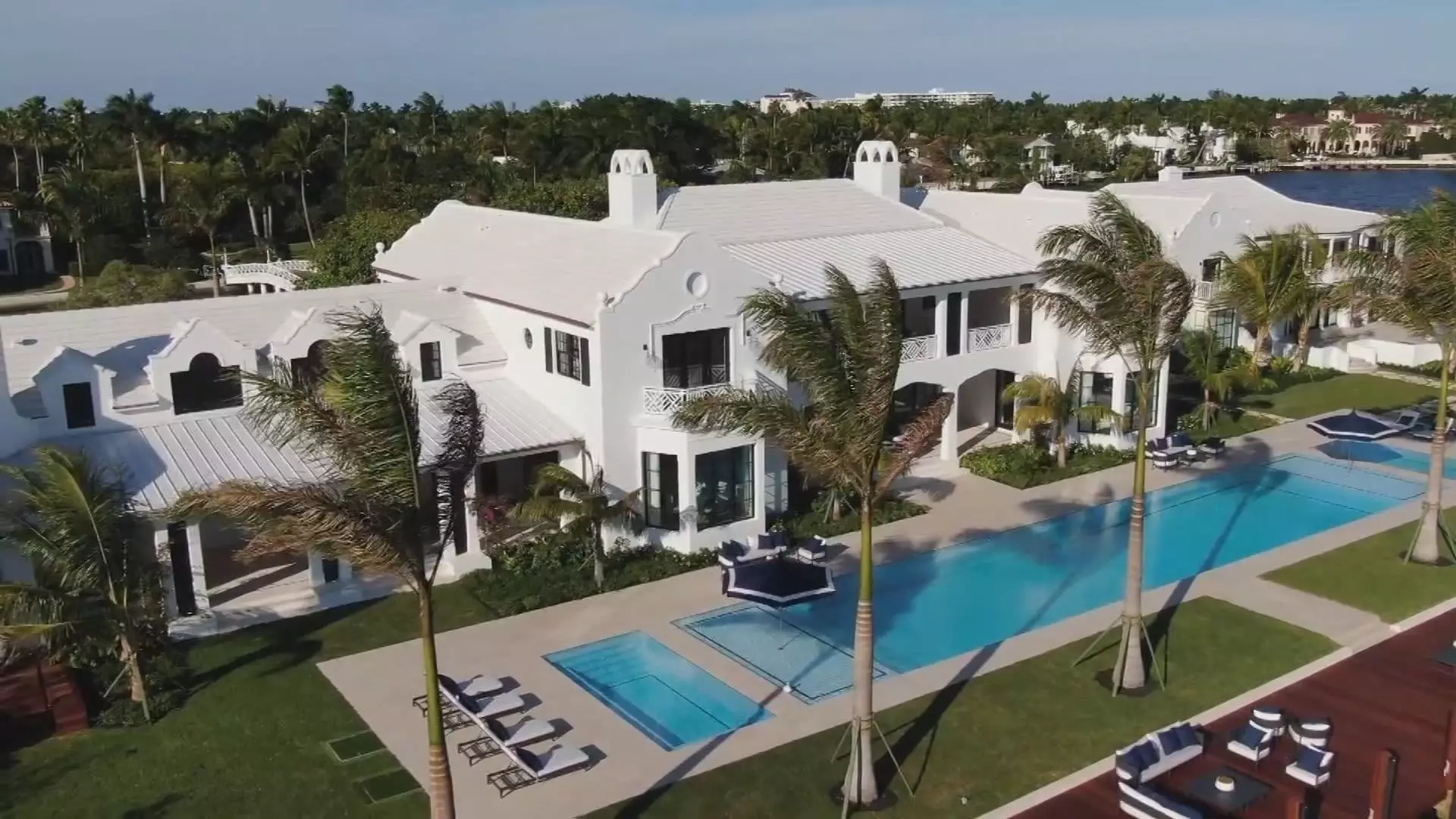The ultra-luxury housing market seems to paradoxically thrive even as global patterns indicate a decline in luxury sales. While most countries are witnessing a downturn in real estate transactions, certain key markets in the United States, particularly New York, Miami, and Palm Beach, have experienced remarkable growth in the sale of high-end properties. This phenomenon raises questions about the driving forces behind this market resilience and the broader implications for the global luxury real estate sector.
Recent data from real estate firm Knight Frank illustrates that the demand for homes priced at $10 million and above surged substantially in the second quarter of the year. Specifically, Palm Beach noted an astonishing 44% increase, Miami enjoyed a 27% rise, and New York saw sales increase by 16%. New York emerged as the leader, registering a two-year high of 72 sales surpassing the $10 million mark, while Miami followed closely with 55 such transactions. Meanwhile, Los Angeles, traditionally known for its luxury offerings, marked a notable decline of 29% in the same bracket of sales, attributed largely to a new “mansion tax” that imposes a hefty 5.5% charge on properties exceeding that threshold.
This juxtaposition between high-growth locales and struggling markets like Los Angeles is striking. The ultra-wealthy appear undeterred by economic fluctuations, indicating a shift in dynamics wherein they are more selective, yet willing to invest in properties deemed as trophy assets.
Palm Beach: The Premier Destination for Big Spenders
Among the remarkable transactions recorded, Palm Beach captured attention with its extraordinary sales, including a $150 million purchase of a private island by Australian investor Michael Dorrell and another historic estate sale for $148 million. Such transactions underline how buyers continue to chase unique properties that signify status and exclusivity. The extraordinary price tags attached to these residences not only reflect individual wealth but also signal the desirability of specific markets as havens for the affluent, further augmenting their appeal among potential buyers.
On a global scale, the luxury real estate market has faced turbulence, with overall sales of $10 million-plus homes down by 4% to a total of $8.5 billion. The city of Dubai is notable in this context, leading the world with 85 sales of ultra-luxury homes in the last quarter. Previously characterized by modest activity, Dubai’s market reflects a paradigm shift as it becomes a magnet for wealthy individuals seeking favorable tax and regulatory landscapes. It’s worth noting that Dubai recorded only 23 sales of such magnitude in 2019, demonstrating an incredible transformation driven by an influx of international buyers.
In contrast, London’s luxury market faced a dramatic reduction, with a staggering 47% decline in sales due to apprehensions over potential tax hikes affecting the wealthy. This serves as a cautionary tale illustrating how political and economic climates can severely impact real estate investments. The divergence in outcomes among international cities underscores the necessity for ultra-wealthy investors to remain vigilant about local policies when making significant real estate decisions.
Amid these complexities, the sentiment among luxury buyers remains cautiously optimistic. The expectation of falling interest rates could further bolster the ultra-luxury market, leading to an anticipated uptick in transaction volumes as we approach 2025. As Liam Bailey from Knight Frank noted, the substantial wealth generation observed globally supports this trend, ensuring that high-end buyers will continue to pursue their interests in premium properties, regardless of broader economic challenges.
The luxury real estate landscape is undeniably dynamic, shaped by factors such as economic conditions, tax regulations, and shifts in buyer sentiment. As we navigate these realities, one fact remains clear: while segments of the market contract, others flourish, reflecting the unique preferences and financial foundations of ultra-wealthy individuals.

